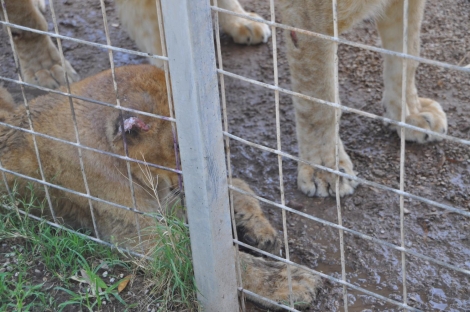A Chinese citizen was extradited from Malaysia to the United States today to face charges for money laundering.
Kang Juntao, 24, of Hangzhou City, China, was charged in February 2019 with financing a nationwide ring of individuals who smuggled at least 1,500 protected turtles out of the United States valued at $2,250,000.
“The Department of Justice is committed to prosecuting criminals who abuse the U.S. financial system to fund their illegal enterprises,” said Principal Deputy Assistant Attorney General Jonathan D. Brightbill of the Justice Department’s Environment and Natural Resources Division. “I thank the U.S. Fish and Wildlife Service for their extraordinary efforts in this case to support the Environment and Natural Resources Division’s mission to protect America’s wildlife.”
“Wildlife trafficking is a serious crime that impacts imperiled species at home and abroad,” said Aurelia Skipwith, Director of the U.S. Fish and Wildlife Service (USFWS). “The Trump Administration is committed to the conservation of wildlife. I would like to thank the U.S. Department of Justice and our various law enforcement partners for their assistance with this case. By working together, we can protect our nation's wildlife for future generations.”
According to the indictment, from June 12, 2017, through Dec. 3, 2018, Kang allegedly purchased turtles in the United States and arranged for them to be smuggled to associates in Hong Kong. He sent money through U.S. banks, including one in New Jersey, to pay for the turtles and their illegal shipments. The turtles would then be sold on the Asian pet trade black market for thousands of dollars each, depending on their sex, coloring, and age.
The United States, Malaysia, China, and approximately 181 other countries are signatories to the Convention on International Trade in Endangered Species of Wild Fauna and Flora (CITES). CITES is an international treaty that restricts trade in species that may be threatened with extinction.
Kang allegedly trafficked in five turtle species protected by the treaty. The eastern box turtle (Terrapene carolina carolina), the Florida box turtle (Terrapene carolina bauri), and the Gulf Coast box turtle (Terrapene carolina major) are subspecies of the common box turtle (Terrapene carolina) and have been listed in CITES since 1995. The spotted turtle (Clemmys guttata) is a semi-aquatic turtle listed in CITES as of 2013. The wood turtle (Glyptemys insculpta) has been protected under CITES since 1992.
The indictment further alleges that Kang sent money via PayPal to the United States to purchase turtles from sellers advertising on social media or reptile trade websites. These suppliers then shipped the turtles to middlemen across five different states. The middlemen were typically Chinese citizens who entered the country on student visas. Kang paid and instructed these intermediaries to repackage the turtles in boxes with false labels for clandestine shipment to Hong Kong. The turtles were inhumanely bound with duct tape and placed in socks so as not to alert customs authorities. Neither Kang nor his associates declared the turtles to U.S. or Chinese customs or obtained the required CITES permits.
The Royal Malaysia Police arrested Kang on Jan. 23, 2019, at Kuala Lumpur International Airport on a request submitted by the United States for his provisional arrest with a view to extradition. An extradition request was subsequently submitted on March 5, 2019, pursuant to the Extradition Treaty between the Government of the United States of America and the Government of Malaysia. Kang’s extradition was finalized in September 2020 and he was surrendered to the United States Wednesday as provided by the extradition treaty. The United States is grateful to the Minister of Home Affairs of Malaysia, the Attorney General of Malaysia and the Transnational Crimes Unit, Prosecution Division, Attorney General’s Chambers for their steadfast cooperation and support in the litigation of the extradition request. We also thank the U.S. Justice Department’s Office of International Affairs, U.S. Immigration and Customs Enforcement’s Homeland Security Investigations Malaysia Attaché, the Regional Security Office, Bureau of Diplomatic Security, U.S. Department of State, and the Consular Section of the U.S. Embassy in Kuala Lumpur for providing invaluable assistance in supporting the extradition and coordinating the return of Kang to the United States.
An indictment is merely an allegation, and the defendant is presumed innocent until proven guilty beyond a reasonable doubt in a court of law.
The USFWS conducted the investigation and escorted Kang to the United States. The government is represented by Trial Attorneys Ryan Connors and Lauren Steele of the Environment and Natural Resources Division’s Environmental Crimes Section.









